This post may contain affiliate links. This just means I may receive a small commission at no extra cost to you for helping them promote their product or service. I don’t endorse any services I don’t personally use or recommend.
Trying to save money for travel? This guide is here to help.
Planning a trip can be daunting. Financing that trip, downright terrifying. The cost of travel is most often what scares potential explorers away. But it doesn’t cost as much as you think.
Traveling independently forces you to be good with money. You become accustomed to currency conversions and quick number crunching. It’s a survival skill. And not to toot my own horn, but it’s a skill that I’ve gotten quite good at.
It’s not enough to be good at spending less while you’re on the road. You also have to be good at saving more so you can actually get on the road.
Warning: This guide is massive. But it covers every single way over the past decade that I’ve found to save more money for travel and help you spend less while abroad.
How to Save More Money for Travel
In another life, we were both bartenders. Now we’re full-time travelers. We went from spending just a couple of months a year abroad to years at a time on the road. We didn’t inherit a fortune and we’re not paid to travel. Yet we do. So, how do we do it?
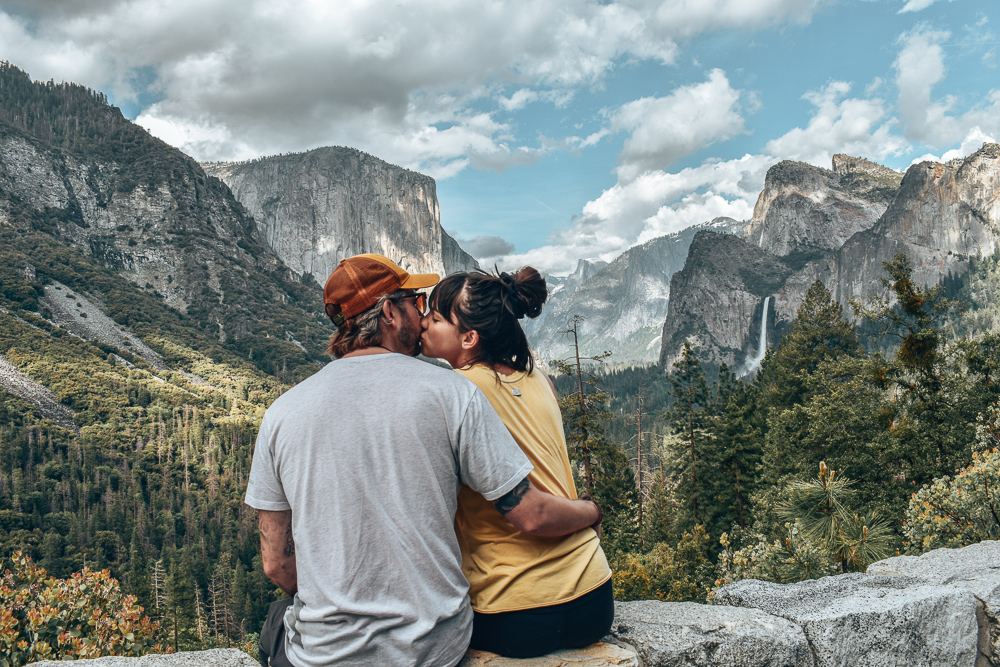
Let’s dive into all our tips and tricks to save money, make money, and spend less money while you’re abroad. I’ll be covering everything from WOOFing, credit card churning, helpful travel apps, to couch-surfing.
Now, I know not everyone has dreams of stepping into the unknown abyss and backpacking Asia long-term like us. But all these tips are applicable to the everyday traveler as well. Trips of ANY length to ANY destination. It doesn’t matter if you’re looking to spend a week in the Maldives or a year in India this guide will help you make it happen.
It’s a common misconception that cheap travel is limited to Asia, South, and Central America. You can travel anywhere on a backpacker budget. Yes, in some places it’s easier than others but it’s possible all over the world.
How Do I Start Saving Money to Travel?
Start buying groceries. Stop your extravagant date nights. And cancel your Amazon Prime. You can’t save money to travel without some sacrifices. You’ll need to cut back on your daily spending and create a realistic budget for yourself.
Decide what you’re willing to cut out.
Here are some examples of what I got rid of 6 months before our trip…
- Sold My Car. Okay, this wasn’t exactly my decision. But it finally croaked and I saved $700 in car insurance and who knows how much more in gas (and parking tickets).
- No Shopping. I haven’t bought new clothes in 9 months. Not. One. Thing.
- I Wanna Quit the Gym. (Friends reference intended) $240 saved over 6 months. Unfortunately, that meant I had to start running again.
- Stop Eating in Restaurants. Eating out is expensive. This is my weakness. But I seriously cut back and saved so much by being BETTER about cooking at home.
Other extras you can cut out include Netflix/Hulu/HBO, Spotify, HelloFresh/Blue Apron, your morning Starbucks, and your weekend bar-hopping routine.
If you’re the kind of person with A LOT of subscriptions you may have forgotten you’re even subscribed to check out the app TrueBill. The app helps you get control of your finances and locates everything you are currently subscribed to. It also has suggestions on ways to lower your monthly bills.
Best Banking Tips for Saving Money To Travel
Getting your finances in order is the very first step to saving more money to travel.
Why I Use Capital One: The Best Bank for Travelers
Not Sponsored. I currently have two Capital One credit cards, a Capital One Money Market Savings Account and a Capital One debit account. I make money every year with these cards.
I’ll breakdown the benefits of each below.
Capital One Venture One Card
$0 annual fee. No foreign transaction fees. This means I can use this card abroad at no extra charge. This card frequently has serious signup bonuses. Like the $500 cash bonus, I received after meeting the minimum spending amount in the first months. As an added bonus, I earn 1.25x miles on every purchase.
Pro-Tip: Sign up for one of these credit cards right before you make a big purchase, like a plane ticket for example. This will help you easily hit the spending requirement for the sign-up bonus.
Capital One Savor One Card
This card also has no foreign transaction fees and $0 annual fee. And has a $250 cash bonus as a sign-up reward. Great for foodies because you earn 3% cash-back at restaurants and bars.
Be aware that you cannot apply for two cards from the same bank and receive both bonuses. You have to wait two years between sign-ups. Both cards above have a “Venture” and “Savor” option with a slightly better sign-up bonus but be warned that those cards have a $95 annual fee after the first year.
Capital One 360 Money Market Savings Account
Unique because it offers up to 2% monthly interest. This is a ton!! Compared to my previous banks very generous % .02. You must meet the minimum account balance to open, but why not let your money make more money?
I made around $600 in interest alone from this account in 2020.
Capital One 360 Checking Account
When traveling to less developed countries you’ll be dealing exclusively in cash. This means lots of trips to the ATM. Capital One debit accounts waive all ATM fees at home and abroad. This alone will literally save you hundreds of dollars while traveling.
To sum it all up…
By doing absolutely NOTHING I have made over $1,600 from Capital One this year from sign-up bonuses, cash-back, and interest.
On top of that, I’m banking with no international fees, no ATM fees, and earning 3% cash-back along the way.
Not a huge fan of Capital One? You should be. But check out Wealthfront. They also have high-interest checking accounts & an easy to use App for managing your money.
Bonus: Chase Freedom Card
This has been a staple of mine for quite some time. 3% cashback on everything straight into your account for the first year! 1.5% after that isn’t half bad either. With ATMs all over the U.S., it’s the easiest card to use here at home. Apply for your Chase Freedom Card Here.
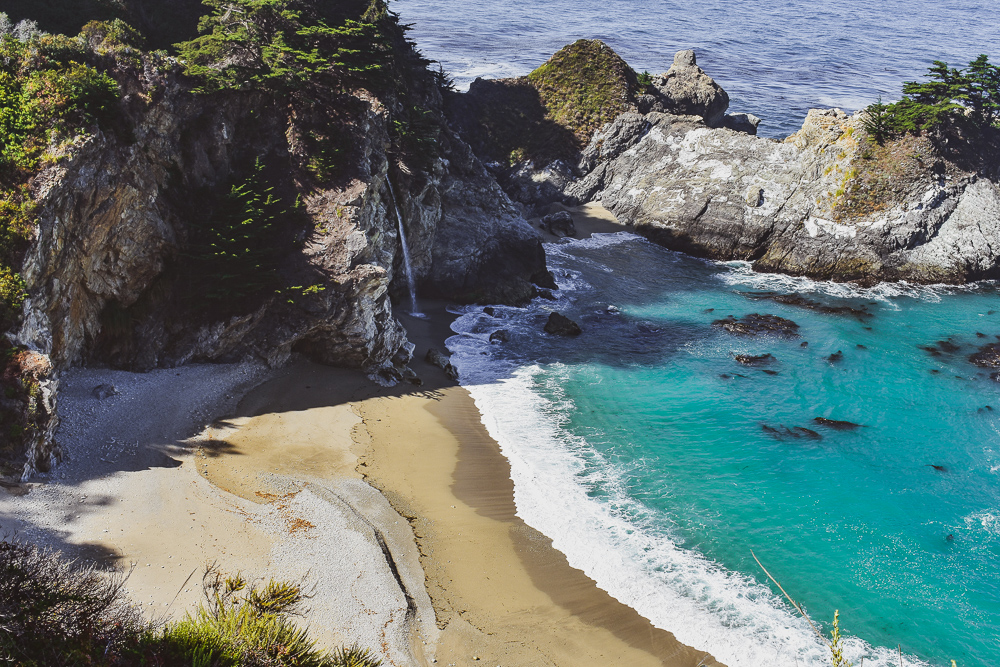
How to Save Money for Travel by Credit Card Churning
You’ve probably heard of it. So what exactly is it? And how can you successfully use it for free travel?
Card Churning: The act of opening and closing various credit cards to score on sign-up bonuses and rewards.
I’m no expert on churning but I have played around with it a bit. Let’s look at the basics.
The Do’s and Don’ts of Credit Card Churning.
Here’s how to successfully reap the benefits of credit cards and avoid the pitfalls.
Don’t carry a balance on the card.
Most of these “high-reward” cards have horrible interest rates. Use them wisely and pay them off immediately. Remember this is not free money.
Get a new card right before you make a big purchase.
Normally to get the sign-up bonus you have to spend $3,000 in the first three months. Time it right and it’s easy to do. Put all your bills on the card and never leave home without it. Just make sure you don’t change your spending habits just to reach the minimum.
For example: Once we opened a card right before we bought our new laptop. And twice we opened cards right before we purchased expensive flights abroad.
Try not to open and close a card within the same year.
This has a negative effect on your credit score apparently. Honestly, I prefer to keep them open. I have several lines of credit open that I just NEVER use anymore. The effects on your credit score are temporary anyways, the slight dip after a hard inquiry on your account normally lasts only a few weeks.
But won’t this tank my credit score??
No. If you pay off your balance before the end of the month your score will be fine. Try not to get more than 2-3 new cards per year. It would be difficult to hit the minimum spending amount on more than one card at a time anyways.
The Proof is in the Numbers: My current credit score is 788, which is in the category of excellent. I’ve gotten 2 new cards this year and have 4 open lines of credit currently.
How to Travel for Free With Credit Card Churning
Through a combination of credit card churning, credit cards miles, and points some hard-core budget travelers manage to travel completely for free. If you want to learn more about travel hacking with airline miles from an expert, check out Nomadic Matt. He’s been a household name in budget travel for over a decade now.
Why don’t I use airline miles? Because as a super-budget traveler I always find myself on different budget airlines. Most airline cards and miles apply to a specific group of airlines and I have no airline loyalty.
Banking Strategies to Help You Save More Money
Now that you’ve got the best credit cards and accounts for travel, here are my simple steps for helping you save money to travel quicker. Sometimes all it takes is a few little tweaks in the way you manage your money to make a big difference.
Create a Designated Savings Account & Make Concrete Goals.
I’m a visual person. Because of this, it’s so important to have a separate savings account specifically for my travel fund. An account with a goal in mind. You should first formulate a large goal and then break it down weekly. Hold yourself accountable for your weekly goal. It’s much easier to work with small numbers.
Always Use a Credit Card.
Take advantage of those rewards! Whether it’s cash-back or miles you’re getting paid to spend. Just remember to always pay off your balance before the bill is due and don’t spend money frivolously to get the rewards as that just defeats the purpose.
Pro-Tip: Take advantage of credit cards with the perks that I mentioned above & also cards offering frequent flyer rewards & loyalty benefits.
Take Control of Your Regular Bills.
Pay your bills all at once. Some people prefer to spread their bills out so they pay weekly. Personally, I have a better grasp on my finances when I pay it all on the 1st. I know from there it’s all either going into savings or spent on leisure. Second priority after your bills? Your savings! Make travel a priority and IT WILL HAPPEN.
Save Money for Travel Apps
For those who need extra help–there are so many budgeting apps out there! The Weathfront App and Mint are fan favorites.
Check out this guide to find the one that’s right for you.
Now that you have whipped your finances into shape let’s look at some other ways you can make some extra cash for travel.
How I Saved $18,000 in 6 Months
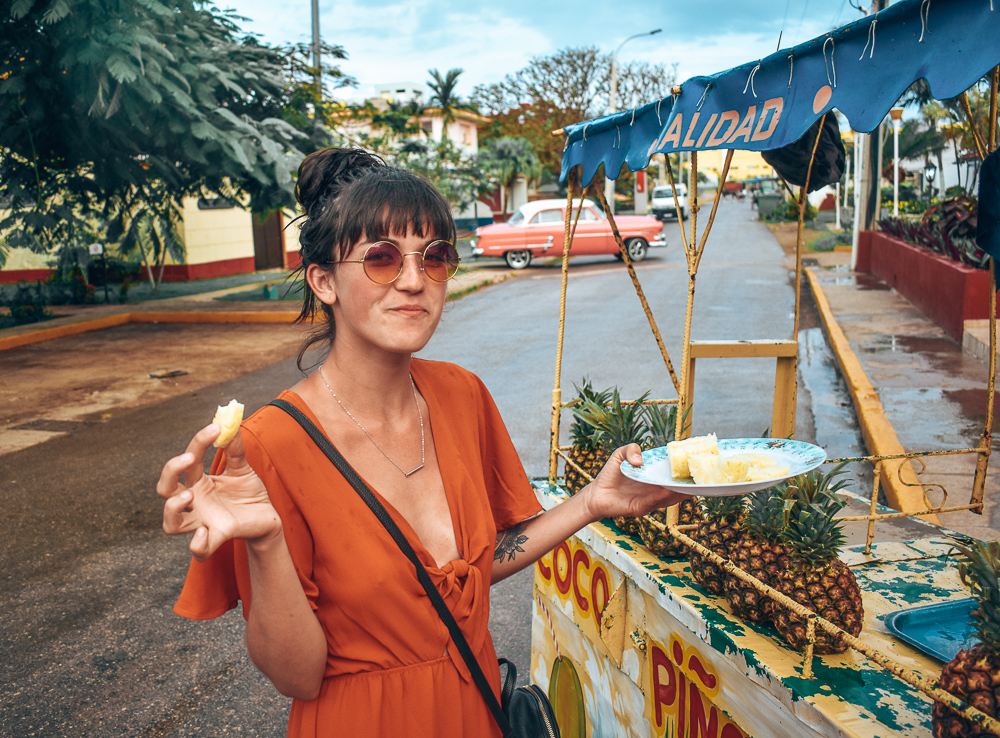
Yes, that’s a shit ton of money. & honestly, WAY more than I had anticipated I would be able to save in such a short amount of time.
Evan and I got home from Colombia in March. We had spent our time in sleepy Salento scheming up plans for a year-long trip abroad and already dreading returning home in a few weeks.
On the flight home, we decided to go for it. Six full months of crash-course saving and then we could immerse ourselves in Asia. First, I tackled the basic money-savers above then I got a second bartending job. And we worked our asses off.
Saving isn’t easy. This isn’t a “How to Save Money for Travel Without Working for it Guide”. People make all kinds of excuses regarding why they aren’t able to travel. But you can. If you’re willing to work for it.
My Monthly Budget Breakdown
Here’s the lowdown on exactly what I spend per month and what I am able to save.
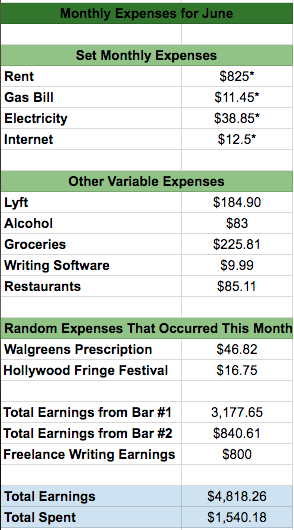
Which is a grand total of $3,278.08 saved in June!
***Rent & Utilities: Rent sucks. Especially in Los Angeles. So, I have roommates. My portion of the rent was $825 out of a $3,300 home shared with 3 others. All my utilities including internet are also 1/4 of the total bill.
My overhead costs are pretty low at just over $1,500 a month. So to save more, I worked more. For most people, it will be easier to cut down on your monthly overhead vs. adding extra work hours.
Your ability to save has everything to do with your overhead costs.
You can save money to travel on any income. But if your spending 50% of your earnings on rent + utilities you won’t get very far. You’ll have to make major adjustments to your income or downgrade your living situation. Consider roommates or lease a less expensive car.
On average, I was able to save around $3,000 every single month by cutting down on my overhead costs and working more hours at the bar.
I was working 6-7 days a week with 16-hour doubles on the weekends. It was exhausting. BUT I knew that at the end of it all I was going to be able to travel for a YEAR or more without having to work a single day. For me, that was worth it.
This number doesn’t include credit card rewards & bonuses, interest from my Capital One accounts, or money earned from selling our stuff.
This is an extreme scenario. If you could save half or even a quarter of what I managed to save you can easily afford your vacation in just a few short months. Especially, if you are planning to travel for a few weeks or less.
Good News Couples & Travel Duos: These are just my bills & savings. As a couple, it’s even easier to save! You’ll have double the savings (hopefully), and when traveling two people does not equal 2x the cost! We split the price of accommodation and share heaping plates of food since you can’t take leftovers. On average it equals out to about 1.5x the cost of a solo-traveler.
More Ways to Save Money For Travel
Some creative alternatives to help you save money for travel. Because it all adds up. These are all small things we have tried at one time or another to make a little extra money on the side.
Ibotta.
This is a grocery shopping app. It’s basically an electronic coupon book for your favorite grocery stores. Answer a few advertising questions and in exchange you get cash-back.
OfferUp, LetGo, and PoshMark.
So many apps. These let you sell your stuff for free. Clothes just sitting in your closet, knick-knacks, furniture, whatever. If you don’t use it–lose it.
Get a Second Job in “The Industry”.
My industry. Serving and bartending may not be your cup of tea. But evening/weekend hours pair well with your desk job. And the money is damn good. I make $300 per 6-hour bartending shift (on average).
Another great second job–driving for Uber or Lyft.
I recently was interviewed on the popular travel site “Goats on the Road” about how bartending helps me travel.
Create Your Side Hustle and get paid on Fiverr.
Everyone in L.A. has a side hustle. Mine is obviously freelance writing. Yes, this is a passion project, but I’m also paid to write. Not for this site–This is solely for you guys. Photographers, web developers, jewelry crafters, voiceover actors, and video editors. It’s all here. Fiverr is a great way to sell your product or service, whatever that may be.
Now that you’re maximizing your earning potential and increasing your travel budget let’s get into that traveling part.
How to Save Money on Vaccines & Trip Preparation
Depending on where in the world you’re headed, you may need some vaccines before you set out.
Did you know that vaccines can be received safely & CHEAPLY abroad?
For those of us without health insurance or with garbage health insurance, vaccines in America can be expensive. This is why I opted to get my Yellow Fever Vaccine in the Colombian airport. Here in the U.S., my decent insurance wouldn’t cover the required vaccine at all. Which meant it was going to cost me $400 out of pocket.
Instead, I did some research and found that a small clinic in the Bogota airport was handing out Yellow Fever Vaccinations for free. It was as simple as showing up, signing a consent form, and a quick needle poke. Japanese Encephalitis is another costly vaccine. Clinics in Indonesia are administering it for less than half its American price.
Don’t rule out vaccinations abroad. Look up what you need & where you are going to make sure you’re getting the cheapest option.
This travel tip is more useful for those traveling long-term. A lot of vaccinations take 2 weeks to become active in your body. No super helpful for those on a short vacation.
How to Save on Flights

Finding cheap flights matters. It’s often the most expensive part of your entire vacation. So, I start perusing MONTHS ahead of time. We’ve been known to travel somewhere simply because of an exceptionally cheap fare (Iceland & Singapore).
I’ve written an entire guide on how we find the cheapest flights possible. Here are some of the highlights & tips from that guide.
- As a general rule, 3 months out is the cheapest time to purchase international flights although there are always exceptions.
- Skyscanner, Hopper, Skiplagged. I go in-depth on these apps and how I use them to watch for the cheapest time to buy here.
- Love your Budget Airlines! Flights are always uncomfortable–budget airline or not. Most still have T.V., meals and some even serve free alcohol on international flights. Interjet, Norweigian Air, and Air Asia are some of my favorites.
- ScottsCheapFlights, SecretFlying, and TravelPirates are all great sites that will send flight deals straight to your inbox. This is super helpful when you in the planning stages of a trip. Sometimes all it takes is one phenomenal flight deal to get you to pull the trigger.
The biggest tip for finding cheap flights? Look around. We’ve found CheapOAir often has the best deals on flights but it never hurts to look at all your options before you buy.
Our Biggest Travel Motivator? We book the flight and then begin saving for the rest of the trip. A risky move maybe, but it always kickstarts us to save.
Do I Really Need Travel Insurance?
Travel insurance covers everything from medical emergencies, delayed baggage, canceled flights, and stolen laptops. It’s a good idea to have it.
The most reputable budget companies are WorldNomads and SevenCorners. Making a claim through them is easy and they offer comprehensive insurance at the best prices.
Introducing Travel Insurance Master.
This insurance comparison site is super easy to use and helps you find the cheapest package that fits your needs. Click the button below to browse their site.
For long-term trips (over three-months)…. insurance costs really add up. Travel insurance for the year to cover our equipment and potential medical bills when we undoubtedly maim ourselves was upwards of $1,800. Which just isn’t gonna happen.
So we found a way to cheat the system. We bought two separate insurance policies.
- Medical Only Policy through SevenCorners. This year-long policy cost $450 for two people with a $0 deductible.
- Progressive Renter’s Insurance Policy. This cost us $150 for the year.
Why Did I Buy Renter’s Insurance?
As a backpacker, all I care about is myself (and Evan), my camera, and my laptop. The medical-only policy forgoes any delay of trip coverages (I’m traveling for a year, who cares if I’m delayed a few hours), lost checked baggage (I don’t check any), and trip cancelation (because I’m not gonna).
What few people know about renter’s insurance is that it covers your claimed possesions ANYWHERE IN THE WORLD. That means if it’s on your policy and you travel somewhere… you’re covered from theft.
And it’s hundreds, if not thousands of dollars cheaper than buying a traditional travelers insurance policy.
Pro-Tip: If you already gave up your apartment like we did to travel, put your renter’s insurance policy on your parent’s or friend’s house. That way “officially” I’m renting a room there, but in reality, I’m traveling the world with my possessions fully insured.
WARNING. This only works with theft and damage (that you didn’t do yourself). We lost our GoPro in the river and unfortunately, you cannot claim items lost due to your own stupidity on renters insurance. You would need a more typical insurance plan in that case.
Travel Cheaper, Travel Better, Travel Longer
Let me say it again for the people in the back, Travel doesn’t need to be expensive. And I’m not encouraging you to miss out on the amazing experiences you can have through travel. Budget travel simply helps your dollar go further allowing you to travel better and longer.
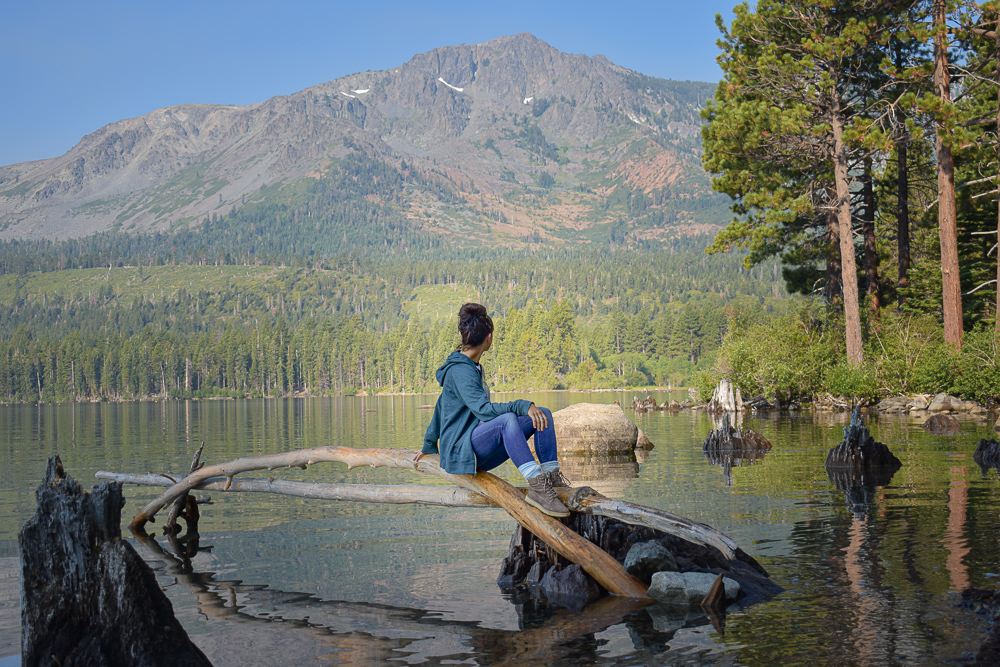
This seems like a good time to layout our personal travel philosophy, so we can decide if we’re all on the same page.
We travel to learn about other cultures of the world. We travel to have unique experiences. To try new things. To see the natural beauty of the world and the people that live in it. We travel not to see a list of tourist attractions, but to get a feel for everything a country is. Yes, we relax on beaches, eat phenomenal food, and experience breathtaking views. But we’re here to push ourselves completely outside our comfort zone and experience this one wonderful life to the fullest.
Evan + Geena’s Travel Philosophy
If you read that and said “Nah, I’m really just looking for a relaxing beach vacation and fine-dining…some of my travel tips below may not be helpful for you.
My brain is bursting with ways to make travel cheaper for the average adventurous explorer. Let’s break it down step by step.
Save Money–Pack Light
Overpacking. We all do it. Every time I think I’ve perfected my packing method I arrive abroad and almost instantly regret 1/4 of the items in my overstuffed backpack. I’m forced to lug a nice pair of flats and a cocktail dress across Cuba that inevitably, will never leave the bag. But on American soil, it’s hard to imagine living with so little.
But it’s more than an annoyance. Overpacking costs you money. You invest in items you don’t need and have to pay exorbitant airline fees when your bag weighs in well over the carry-on limit.
Follow these simple steps to pack your perfect bag…
- You always need less than you think. Start with this mentality.
- Invest in a high-quality medium-sized pack. Whatever bag you purchase you’ll fill. And then you’ll have to carry it. 40L bags abide by all airline carry-on requirements and should be sufficient for most travelers.
- Mock Pack Twice. And remove items both times.
- Try to leave about 1/4 of your pack empty. You’ll pick up things along the way and this allows for easier re-packing throughout the trip.
- Don’t forget to weigh your bag! Hop on a scale wearing it & subtract your weight for the most accurate measure. Most budget airlines allow 7-10kg or 15 to 22lbs.
Packing Pro-Tip: If your bag is over-weight you can carry your camera or laptop in your hands on board. Most airlines allow this.
When To Travel?
For every destination in the world, there is high-season and low-season. There is also this sweet spot called shoulder-season. The period of time between high and low-season where the weather is still ideal and the prices start to drop.
This is when you should book your trip.
High-season accommodation and flight prices skyrocket not to mention the cities are overcrowded. But you don’t want to visit somewhere like Thailand during monsoon season either. Save some money with no sacrifice of comfort by booking your stay during shoulder-season.
Where To Travel?
This guide is for travel ALL OVER the world. But some places are simply more budget-friendly than others. Consider saving an expensive tour of Italy & France for when you have a larger travel budget. Some of the cheapest international destinations in 2019 are…
- Indonesia
- Georgia (the country, not the state)
- Laos
- Argentina
- Romania
- Mexico
- Turkey
- Bolivia
- Colombia
- Cambodia
With average costs of $20-25 per day as a backpacker.
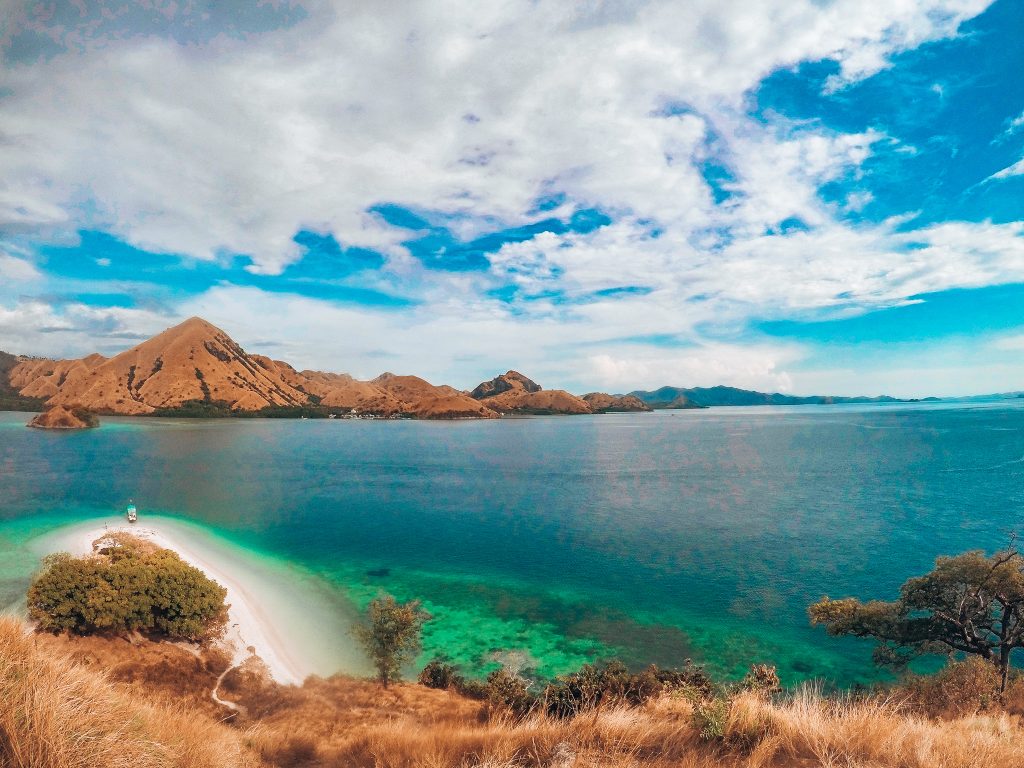
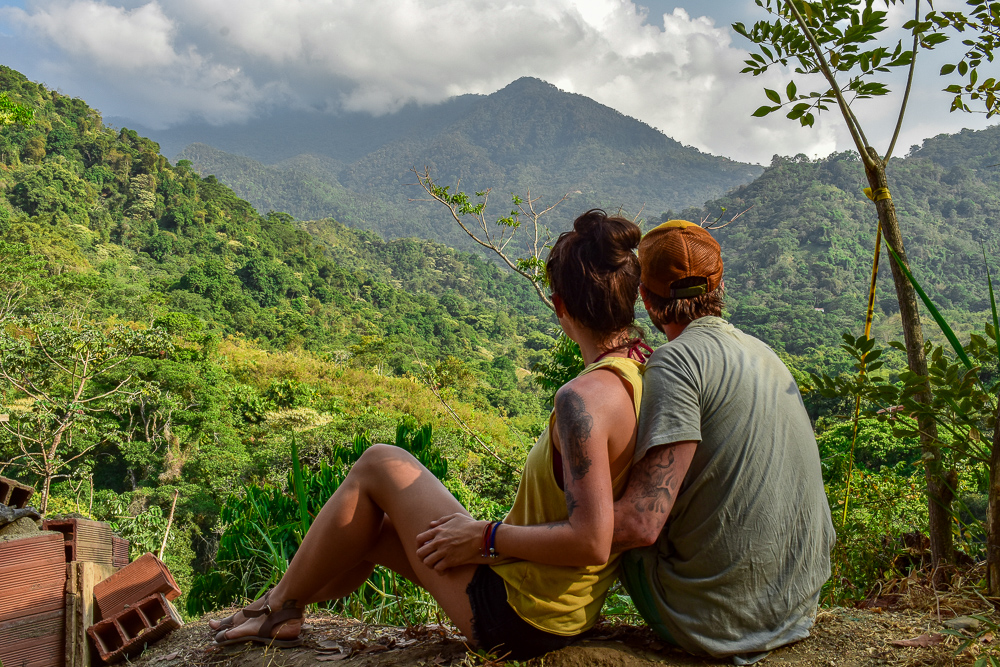
Areas like SouthEast Asia, South, and Central America are renowned for their budget-friendliness. But South-Eastern Europe, the Middle East, and the Micronesian Islands are all just as easy to travel budget-consciously.
Consider a trip to one of these stunning places if you are looking for the most bang for your buck.
Where to Stay?
Homestays, Hostels, Guesthouses. We have a general rule of keeping our accommodation price under $20 per night. And it’s surprisingly easy to do. For Asia however, our accommodation budget is significantly lower. We will be spending no more than $10 per night.
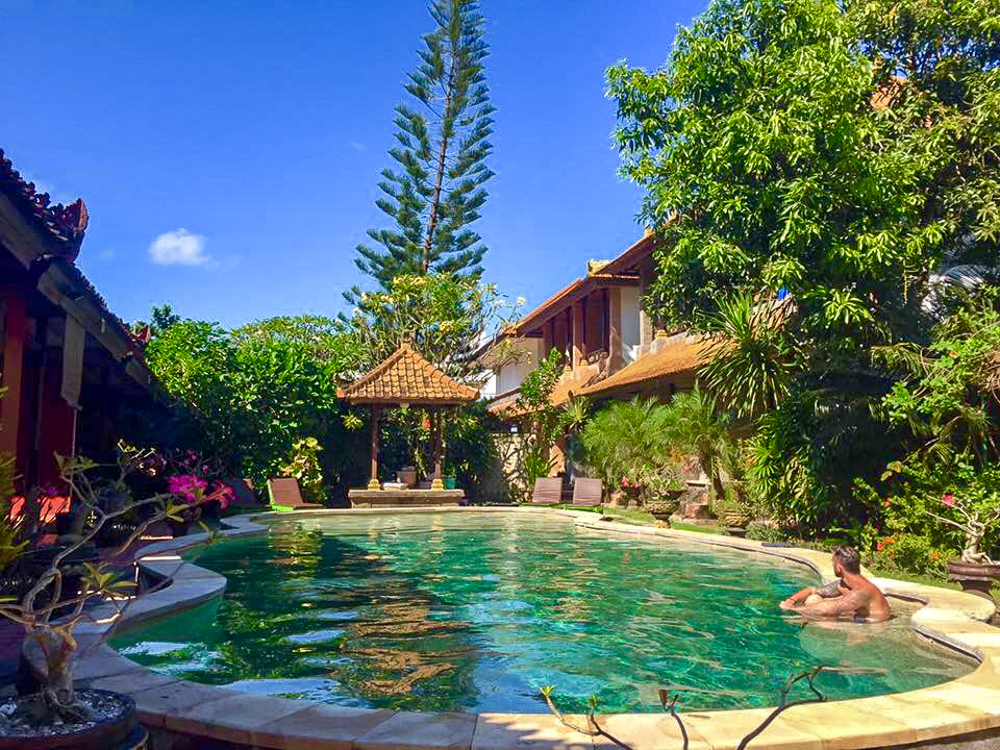
‘Hostel’ shouldn’t be a dirty word. If you are a solo traveler this is 100% the cheapest room style for you. A dorm bed in a backpacker hostel typically costs anywhere from $3-8.
If you’re a little apprehensive about staying in a hostel check out their ratings on HostelWorld. Properties listed on the site are vetted and frequently visited by other travelers.
What is staying in a hostel dorm like?
You get a basic bed with sheets, access to a shared bathroom, and free breakfast. You’ll likely be sharing the room with 4-8 people. All of them fellow travelers full of recommendations, stories, and helpful advice. You’ll have wifi, a front desk that can arrange tours if that’s your thing, and often a community room with games, books and sometimes a bar. Sounds absolutely horrific, doesn’t it?
Pro-Tip: If your planning on staying in one city for an extended period of time, consider “volunteering” at the hostel. You’ll work in the bar, restaurant, or front desk for several hours a day in exchange for free room and board and often free meals.
If your traveling as a duo/couple/group often a private room in a hostel or guesthouse is cheaper. Rates are by the room instead of by the bed. Typically $5-15 is a good budget range.
Why We Never Stay in Chain Hotels and Resorts—They are unnecessarily expensive, westernized, and don’t do anything to support the local economy. The “perks” that come along with them are just creature comforts that will remind you of home instead of immersing you in the local culture.
Want even Cheaper or Free Accommodation?
Yes, it is possible. Sites like CouchSurfing.com and GlobalFreeloaders.com allow you to stay in locals homes–free of charge. It’s set up much like Airbnb, you create a profile, search by city, and browse homes. The only difference is you don’t pay to stay. If the owner approves you, you’ll have a free couch or room to sleep in and a local nearby who loves to share their city with travelers.
Another free accommodation option for longer stays is TrustedHousesitters, Nomador, and MindMyHouse. You’ll have the option to housesit (and often pet-sit) all around the globe. For most sites, there’s a one-time fee of around $75–but for free accommodation in Venice for a week or two? That’s a steal.
House-Sitting Pro-Tip: Often the owners will allow you to raid their fridge while they are away. Saving you lots of $$ on food. Make sure to check ahead of time before you start snacking.
What We Use To Book Accommodation
HostelWorld, Booking.com, and Agoda.
These have time and time again proved to be the cheapest options. Booking.com has a “booking genius” plan that gives you 10% off already cheap deals and occasionally a free night the more you use it.
If you are traveling with a larger group Airbnb can be a good option as well.
Other Accommodation Tips
Here are some helpful tips for finding the best budget-friendly accommodation.
- Avoid Tourist Areas. Major tourist areas always hike-up the prices. Steer clear of those and instead search for rooms near public transportation.
- Don’t Book too Far in Advance. Know when it’s cheaper to book ahead and when it’s cheaper to walk-up. Generally speaking, I book only the first night of my trip ahead of time.
- Perks of Walk-Ups. When you walk-up in person, you can potentially haggle on room prices or if you’re staying a week or more get a discounted rate. Many of the local hostels or guesthouses aren’t online. Those often have the best prices if you can stumble upon them.
- Flexibility is Always Key. Not booking ahead also allows for greater flexibility. Which is super important for budget travelers. You never know when plans are going to change.
- Know Your Travel Style. Not everyone is cut out for the cheapest rooms. If you require A/C or a private bathroom make sure to double-check that your room has these amenities.
Save Money on Food
A lot of travel is centered around food. As it should be. You learn a lot about a country by tasting its traditional cuisines. And you shouldn’t miss out for the sake of saving money.
However, here are some ways you can save without sacrificing your eating experience.

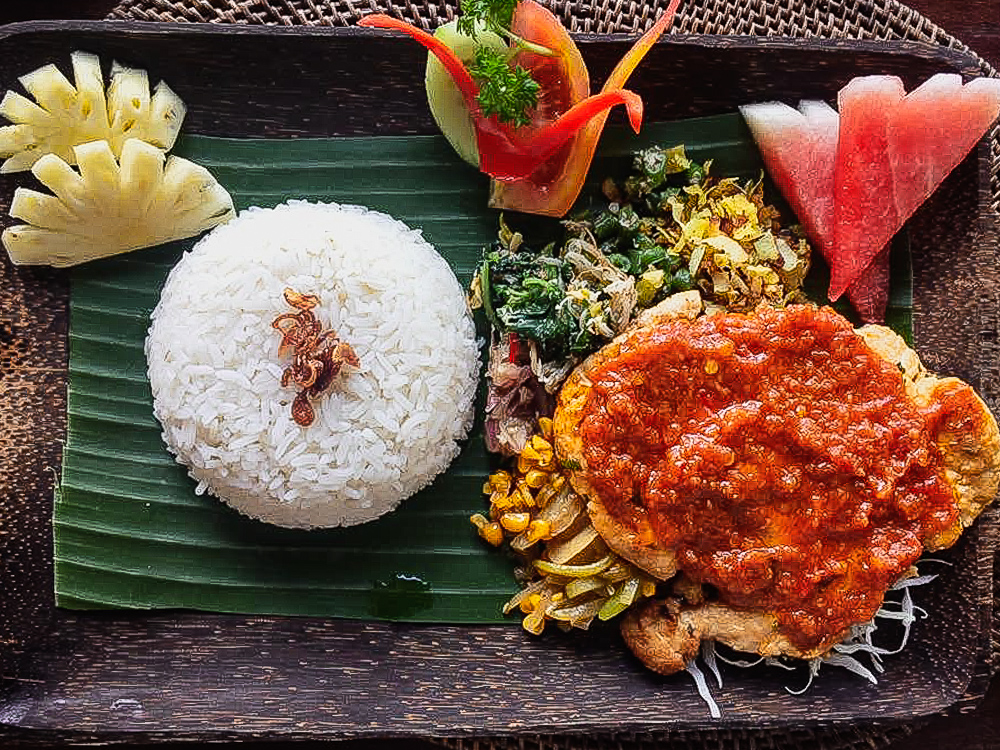
- Eat Local. This is always the cheapest option. And the most authentic. Find places crowded with locals for the best (and safest) food.
- Try Street Food. Street food is the heart of cultures around the world. Some vendors have been perfecting and selling one specialty for decades. So obviously it’s phenomenal. And exceptionally cheap. Stick to vendors that have a line or a positive reputation and you have nothing to worry about.
- Utilize Free Meals at Hostels. Most hostels provide a basic free breakfast and some even offer a family-style dinner. This is a great way to make friends with your hostel mates and save money on food.
- Eat Far from Tourist Attractions. Cost increases because of convenience. These areas get a lot of foot traffic so they can sell their dishes for a higher price and often they are of much lower quality.
- Avoid Restaurants with Street Touts who try to lure you in. The prices will be high and the quality low.
- Check out the Local Markets. Grocery shopping can be a great alternative to eating out for every meal. Checking out the local markets is a great way to understand the city and the beginnings of our food. Check out my article on visiting Mercado de Bazurto in Colombia.
- Cook a Few Meals Yourself. After your visit to the local market, you can take advantage of your hostel kitchen. Even doing this 3 times a week you’ll save a considerable amount of money.
Pro-Tip: I know it’s a vacation. But alcohol is a HUGE budget buster. I’m not saying sobriety is the key but Alcohol is most expensive when you purchase it in bars. Try picking up a bottle from a local grocery or convenience store instead. Many countries don’t have open container laws either, which means often you can take your drink straight to the beach or streets.
Save on Transportation
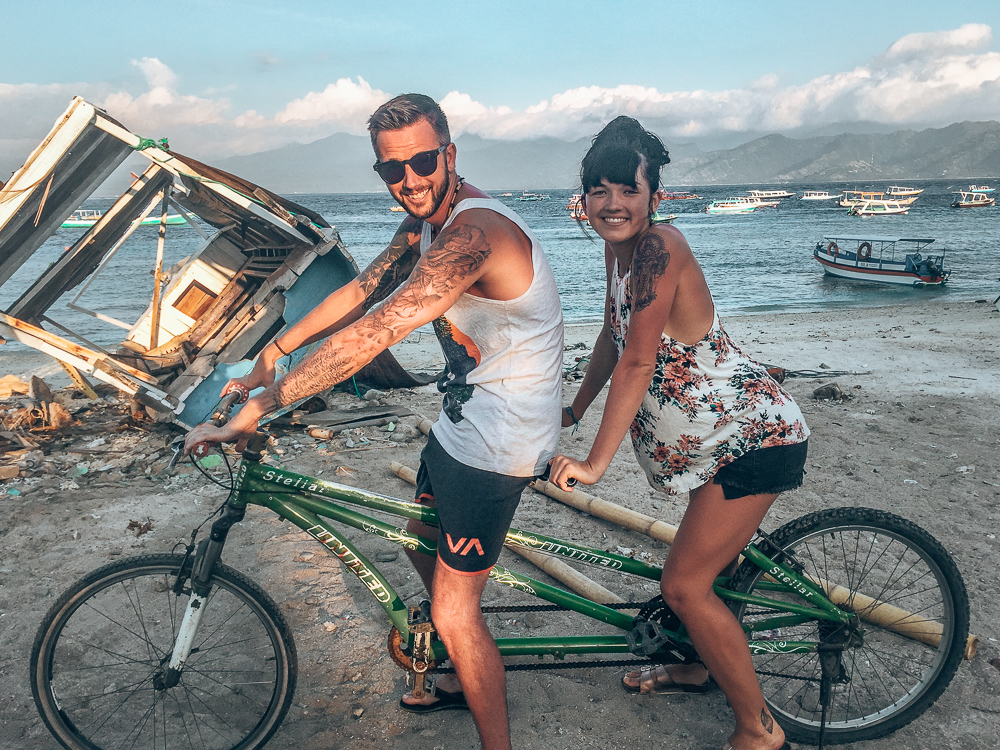
Moving around is expensive. Buses, trains, planes, and Visa renewals. They all add up. The easiest ways to save money?
- Stay Put. Pick one city or country and stay there. Cramming several countries into a relatively short time frame skyrockets your expenses quickly.
- Slow Travel. As a general rule, the slower you travel the more you save. And the more in-depth you can explore each city. With more time, you can also opt for cheaper overland routes on buses and trains instead of spendy flights.
- Plan Your Wise Line. A wise line is the cheapest & most sensible route. It involves the least amount of backtracking and connects all the destinations you plan to visit. It involves a good deal of planning and research to craft your “wisest line” and it’s likely to change along the way.
Transportation within a City
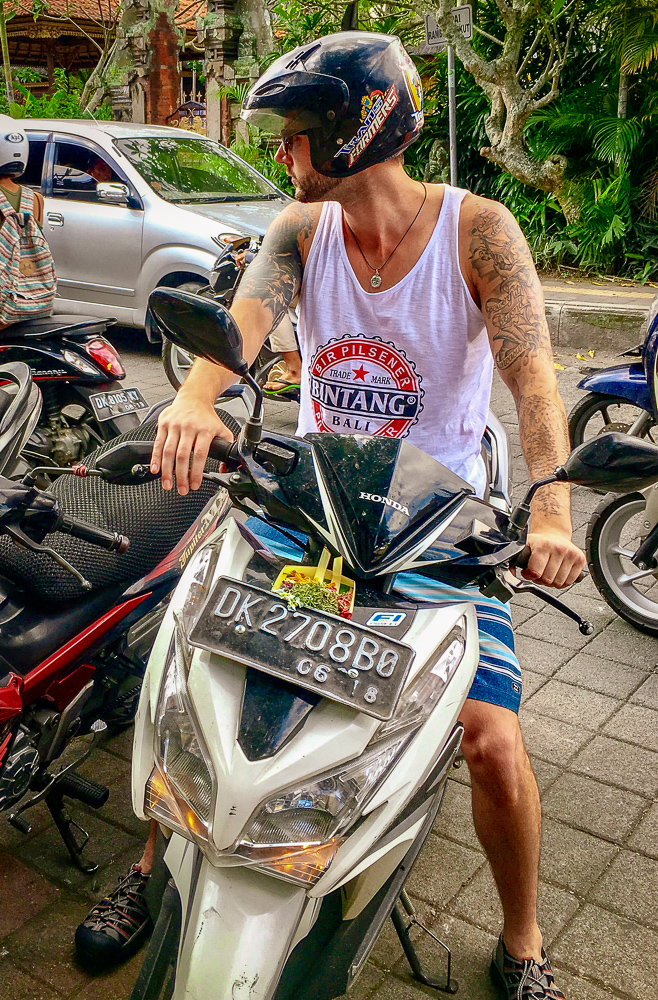
Getting around a city is easy. Getting around cheaply as a foreigner when you don’t understand the city, can be rather difficult. So try to think like a local. Here’s how we get around within a city.
- Many cities are set up for walking. The best sightseeing is done on foot anyways. Maybe this is why I always lose so much weight while traveling??
- Use public transportation! Being from the U.S., it’s something we aren’t entirely used to. But it’s how the majority of the world navigates their hometown.
- Download the local rideshare app. Uber, Lyft, Grabcar (for Asia), FlixBus (US) and BlaBlaCar (Europe).
Taxi Travel
For longer distances or places not reachable on public transit, your best option is to hail a taxi or tuk-tuk. Often this is a pricier option than public transit and ride shares, but here are a few things you can do to make it cheaper.
- Share Your Ride. Try to find some friends at your hostel to share the ride with and split the cost. Most often travelers find themselves going to similar places anyways.
- Don’t Hail a Taxi Near Major Tourist Sights. Walk to somewhere a little more local or central. Taxi’s charge tourists more (unless you are using the meter), so avoid areas with heavy tourist traffic.
I follow two basic rules when it comes to taxi travel.
- You never want the Taxi that hails you. Countless times, when I’ve looked lost or just generally confused, a taxi driver has appeared out of thin air to “help me” find my way. Unfortunately, it always ends up costing me. You’ll be charged 10x as much or scammed in some other sketchy way. Just save yourself the hassle and avoid cabs that come to you.
- Always Use the Meter. A driver is NEVER going to quote you a price that is cheaper than simply using the taxi meter. Find a driver who is willing to use it. Some frequently traveled routes or in countries where haggling is commonplace, this won’t be possible. But you should always try.
Transportation Between Cities/Countries
The long-distance rides. Taxies are out of the question & it’s rare public transit links different cities, so where can I find the cheapest rides?
- Trains are your best friend. You’ll get there quickly, safely, and cheaply. Pack yourself some snacks because items sold on the train will be overpriced.
- Check the local budget airlines. Sometimes you’ll find a screamin’ deal. For example, you can fly from Kuala Lumpur to Penang, Malaysia for $8 USD. Google flights is a great reference when browsing these budget airlines.
- Check with your hostel. If it’s a popular route, your hostel will be able to arrange a shuttle bus to come scoop you up. Not as cheap as trains but often still a cheap and hassle-free option. Tip: Have a drop-off location in mind before departure. Often they will take you straight to your next hostel or destination.
- Sleeper Bus. I love a good sleeper bus. Think of it as a hostel and train all in one. You get a (semi) reclined seat, a pick-up time of 10 PM or so, and you’ll be in your destination at sunrise. Saves you money on accommodation for the night.
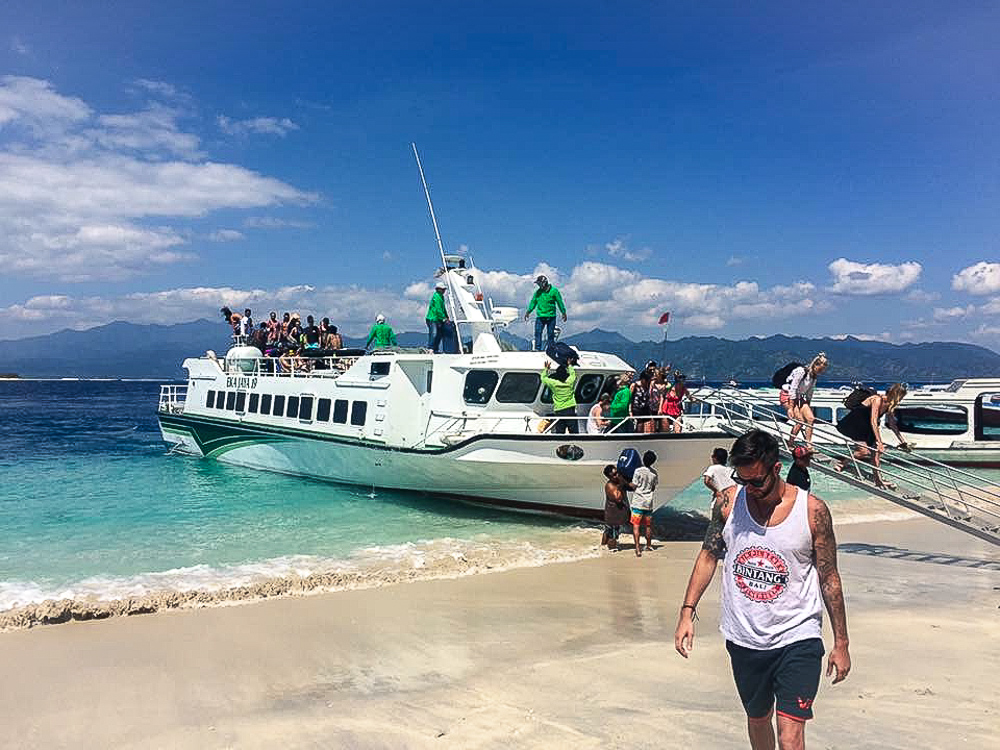
Save Money on Activites
Preparation is key. Always. A little bit of research online or asking around at your hostel will reveal a plethora of FREE activities around town. This is a great way to get acquainted with a new city.
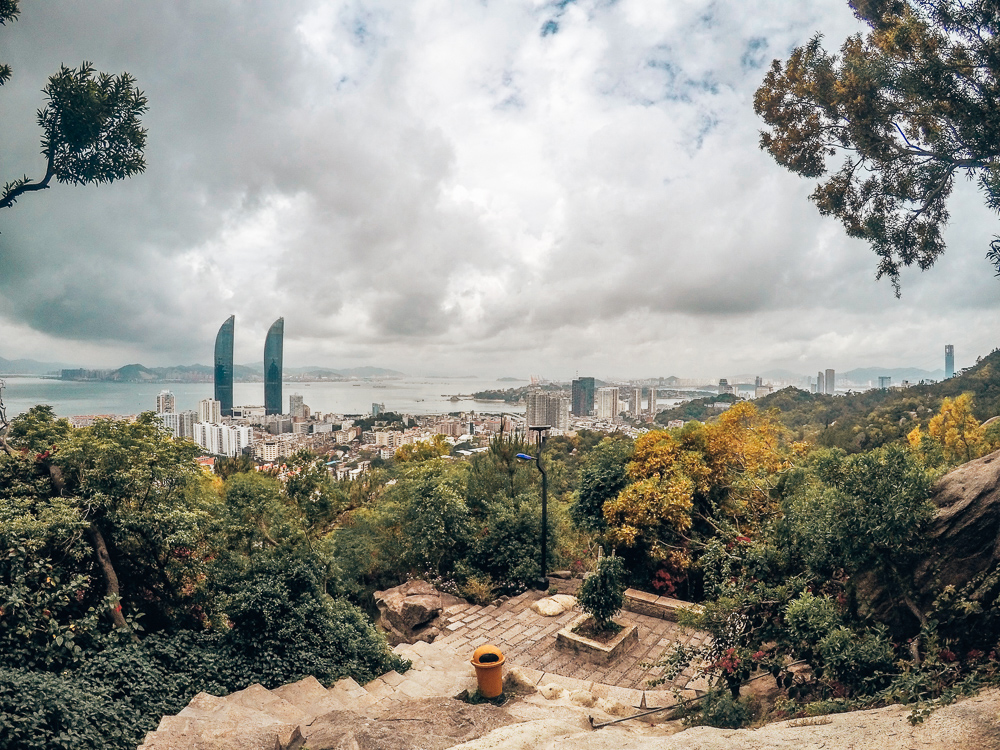
From exploring the local park, hiking trails, wandering china town, getting lost in the local market, tea & coffee tasting, graffiti-tours, or biking through the rice-fields; we’ve done it all and more for free.
Other Free Activites to Look For
- Free museum entrance days. In Colombia it’s every Sunday, in France it’s the first Sunday of every month. Check your destination before you go.
- Free city walking tours. Most major cities have them. You’ll learn some history and city highlights from a local at no cost to you. (It is customary to tip your tour guide)
Of course, you will have to pay for activities on occasion. Here’s how to make sure you’re getting the very best price.
- Book through your hostel. They often offer cheap deals set up with reputable organizations.
- Avoid street touts. They get a commission (paid by you) for every person they book.
- Book directly online. Not usually the cheapest option. But it helps to know a ballpark figure of how much your activity may cost.
- Watch out for Student or Youth Discounts. It’s been a while since I’ve been in school, but sometimes that old trusty student ID card can save you some serious cash. If you are under 26 many attractions in Europe can also be done at a discount or free.
How to Haggle
Haggling is an art form. It’s uncomfortable, awkward, & frustrating at times but it’s a necessity in certain parts of the world. This is how you haggle like a pro.
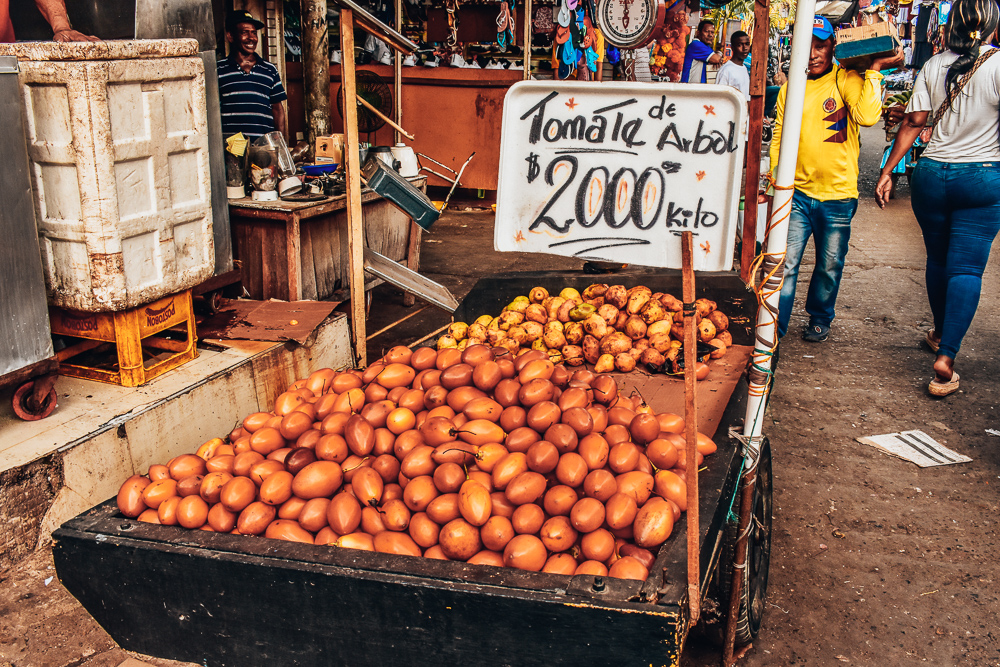
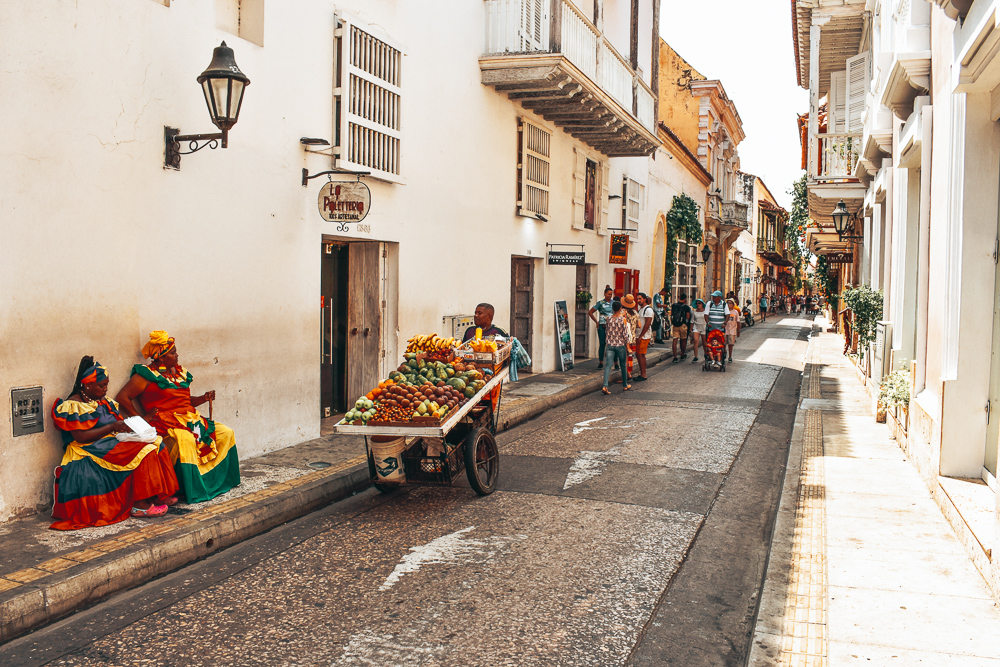
- Know the Market. Browse other stalls before buying so you know what the competitors are charging. For taxi prices, ask your hostel front desk what you should be paying. Salesman count on the fact you don’t know what things should cost.
- Never seem too interested. Haggling is like poker. If you seem desperate or over-eager they’ll know they can get more out of you.
- As a general rule, offer less than half of what they first quote you.
- Walk away. You’ll get the best price after some haggling as you walk away from their shop. In a last-ditch effort to gain your business.
- Keep your cool. Sometimes you just want a straight-up price and not to have to haggle with every street vendor and taxi-driver in the country. But always remember, they do this out of necessity. Many live in poverty or on very low incomes. Haggle smart and with a smile, it’s all part of the traveling process.
Using Money Abroad
Got some general questions about money abroad? I’ve got some answers.
Do I need to bring foreign currency with me?
No. Some people go through the hassle of converting money with their bank or other agency at home but this is not the best use of your dollar. Even if the conversion rate is good, it won’t beat a local ATM. It’s best to just find a debit card with no ATM fees and go from there. (Cuba is an exception to the rule, check out my full post on visiting Cuba as an American)
Where do I get the best exchange rate?
If you must exchange currency, you get the best rate at local banks. The airport will always have the worst exchange rates because it’s too convenient. Locals often get better rates than travelers in certain countries (Cuba) so consider sending a friend to exchange.
Cash or Credit Card?
Depending on the country and level of development, one can be better than the other.
As a general rule in more rural areas and less developed countries cash is king. You’ll be dealing in cash everywhere you go, from your hostel to the excursions you embark on.
This means A LOT of ATM use.
It’s important to know what your banks’ policy is on ATM fee’s because the other side of the world may not (will not) have your banks preferred ATMs. (See Capital One above for our no-fee checking account.) Here are a few tips you should know before pulling out wads of cash.
- Even with a fee-less banking card, some ATMs charge their own fees. Research what ATMs are in your banks’ network to avoid a surcharge. For Capital One its Allpoint ATMs.
- ATMs in airports are the WORST! Airports and other tourist hotspots limit the amount of money you can withdraw severely. This means you have to use the ATM more often and therefore pay the small fee more often. A little each time adds up.
- Look for ATMs in or near banks for the maximal withdrawal amount.
As for credit cards, most developed areas of the world will accept them. I prefer to use them for larger expenses like accommodation and excursions. Some restaurants will have a fee for card use.
Where do I put my stacks of cash while I travel?
You shouldn’t keep all your cash in one place. I prefer to put some small bills in my purse for the day and then split the remainder between Evan and I’s packs. This way there’s no scenario where we lose all of it & I’m not digging through piles of cash to pay vendors.
Should I bring U.S. Dollars with me?
Emergency cash. I always bring a couple hundred in American dollars in my pack. You never know when you might need it.
Pro-Tip: Foreign ATMs are tricky. I’ve had multiple cards eaten for no apparent reason whatsoever. Make sure to have a few back-up cards just in case. Evan and I both have cards for the same account.
Track Your Finances and Other Helpful Apps on the Road
Before you embark on your adventure it’s helpful to determine your average daily budget. You can do this one of two ways; take your trip fund and divide it by the length of your stay, or for long-term trips, extensively research and determine a do-able daily budget and stay as long as possible.
For example, we decided on a daily budget of $55 total for the two of us together during our Asia trip.
Enter TripCoin.
This app is a lifesaver. Throw in your total trip budget and it breaks it down for you. You’ll get an up to date daily budget, visually see how you’re spending your money, and the option to add photos of receipts & specify whether you paid cash or card.
My favorite features are the ability to record expenses in the foreign currency (so I don’t have to do conversions), and the ability to split costs over multiple days (for when you pay for a multi-day trek for example).
Your money has never been so organized. (Not Sponsored)
Other Helpful Travel Apps
- Currency. Allows for offline conversion between all currencies of the world.
- WhatsApp. The entire world uses this. It basically completely replaces the traditional phone network. And it’s free. Text, call, and FaceTime anyone in the world (while you’re connected to WiFi).
- Rome2Rio. This is my transportation bible. Put in any two destinations and this app calculates all possible public transportation, taxi, flight, and tour bus routes to get there. It tells you the expected cost and the recommended route considering the level of convenience.
- Maps.me or Google Maps. Download maps for free and you can use your navigation offline!
- TripIt! This app is super helpful for people who like to plan things out completely. It organizes your flights, activity, and accommodation reservations in a clean and neat timeline. It also stores confirmation numbers and other helpful info for checking in.
- Optional: TripLingo is highly acclaimed. It gives you helpful local phrases you’ll use as a traveler, general phrasebook, audio translator, tipping policies, local emergency & medical numbers, cultural do’s and don’ts, and a built-in Wifi dialer so you can make calls while connected to WiFi. You do have to pay for this app, however.
Do Your Research
Ignorance is not bliss. Being a well-informed traveler is SO IMPORTANT. For a lot more reasons than saving money, but I won’t get into that.


My research process is extensive. And it always saves me money. Money most travelers don’t even realize they are losing. It’s more than just knowing the major points of interest and how to best navigate between them. Although, yes, that is vital.
Book that flight & then get to studying. Here’s exactly what you should research to save some moolah.
- Upon arrival–Metro or Taxi? Rides to and from the airport are always the most expensive. You can save a TON if you know how to access public transport right away.
- Know Average Taxi Meter Rates. You can find them here. That way you’ll know when your getting scammed.
- Know the Local Tourist Scams. Read my guide on scams to avoid in South-East Asia and this guide on common taxi scams around the world.
- Know the Cheapest Routes. This comes with creating your “Wise Line”. Some cities are cheaper to travel between than others.
- Find Free Days. Don’t miss out on free walking tours and free-admission museum days.
- Stay Healthy. Know when you can & cannot drink the water for example. Health and Safety are super important abroad. A little research and you’ll avoid a nasty bout of food poisoning.
- And finally, Know What Things Cost. Don’t overspend out of ignorance.
How Can I Travel Completely for Free?
This isn’t for everyone. It’s not even particularly well-suited to the way I travel, however, I’m just laying all the options on the table.
A volunteer-based program that allows individuals to travel to far-away places, live on an organic farm, and in exchange eat & sleep for free. This is ideal for travelers who just want to see another part of the world or those who want to learn a new skill.
A variety of volunteer opportunities from babysitting, NGO project work, animal welfare projects, sustainability projects, house-sitting and farm-stays. There is often a minimum amount of time you must stay.
Disclaimer: I don’t support short-term voluntourism projects because they do little to help the communities and can actually contribute to human rights abuse. You’ll pay thousands to “support” impoverished communities but studies have shown it does quite the opposite. These organizations above are free to volunteer with and actually helpful to the communities.
Now You Can Travel Too
If you made it with me this far, you’ve proven you’re dedicated to making your travel dreams a reality! Knowing how to save money for travel is just the first step, now you have to put it into action. It’s going to take some sacrifice and ALOT of hard work, but it is oh so worth it.
My biggest goal with this blog post was to show that you CAN take control of your finances. I know that many may not be in the same financial position I am. Student loans, car payments, and leases get in the way of our savings. But knowing how to get yourself out is your first step to financial freedom. The money-saving tips in this guide will help you save money & travel cheaper getting you the tools to move ONE STEP CLOSER to living your best life.

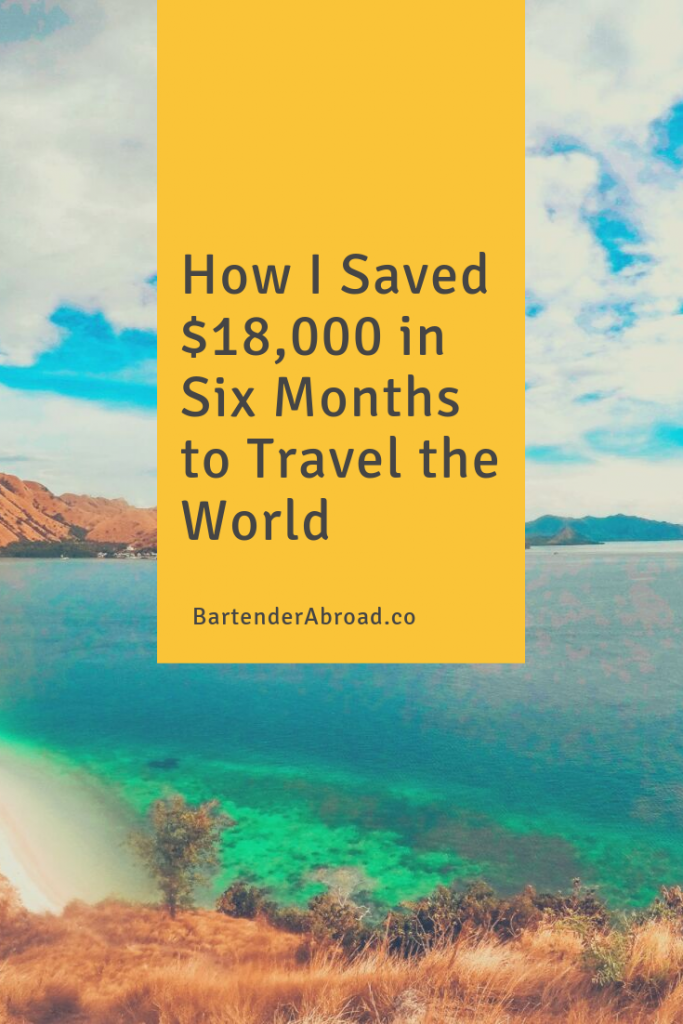

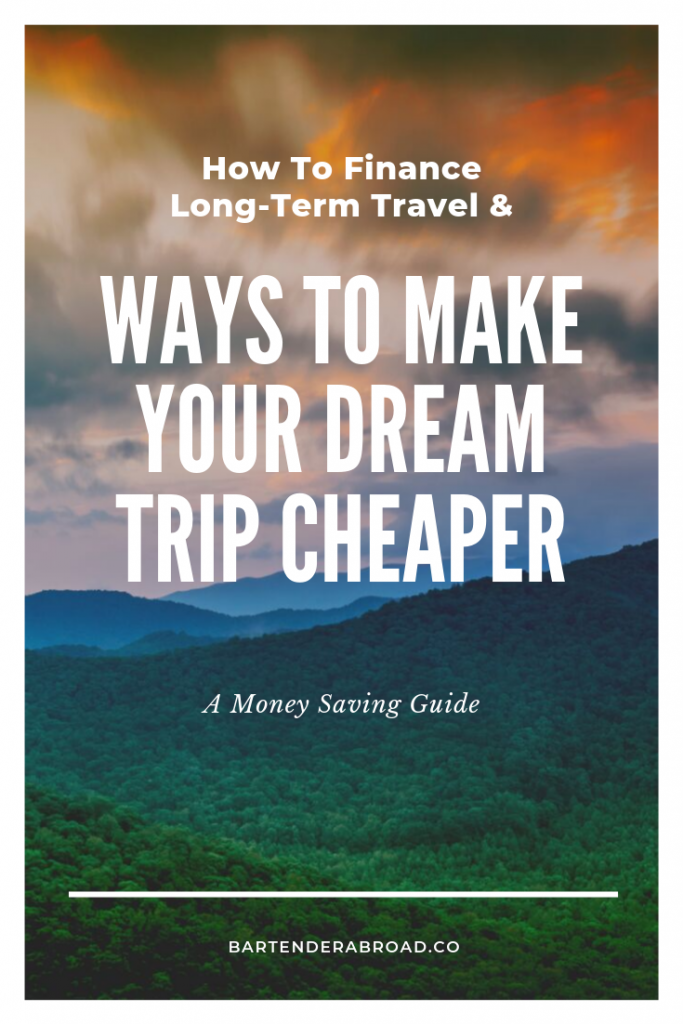
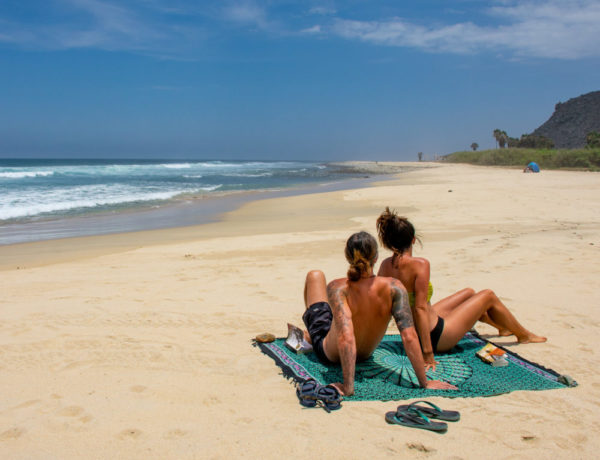
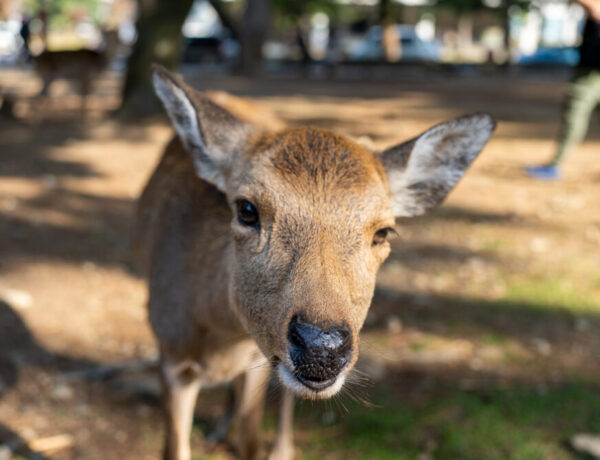
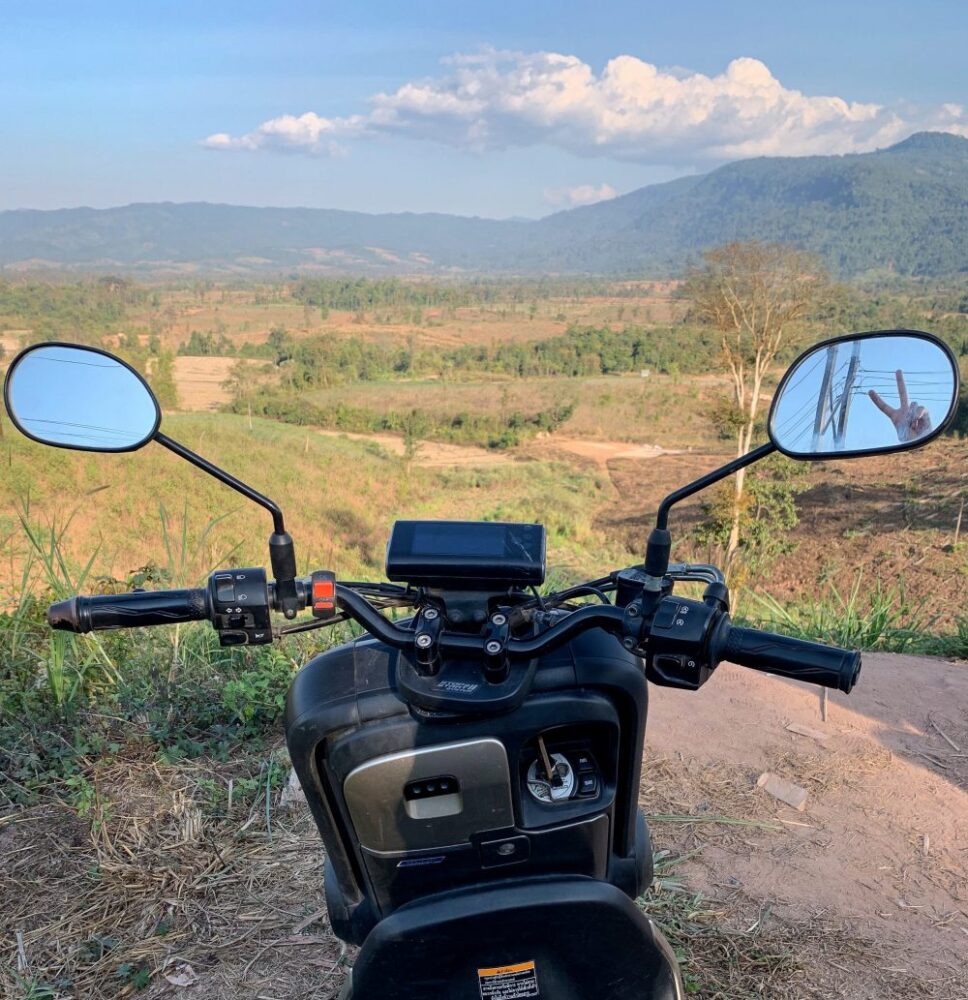


3 Comments
Michelle
August 19, 2019 at 4:49 pmLove all of this information Geena. Ryan and I too only used our capital one credit cards while traveling to Bali last May because of the zero transaction fees. And we are also 2 bartenders. ? Great Post!!!
Farrah
September 18, 2019 at 12:59 amThat photo of Indonesia is gorgeous! I’d love to go backpacking all over the world, so saving money is a definite must/plus! Hostels are my favorite place to stay, especially when traveling alone!
Paula
January 16, 2024 at 2:45 amwhat a great article, very useful! another tip – I also land up saving up on unnecessary expenses like atm fees etc – using apps like ATM Fee Saver – it helps find atms abroad in south american countries with no fees or lower fees than others along with withdrawal limits etc. worth adding to your list of tricks!